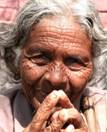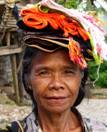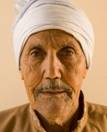|

|
|
United
Nations Activities toward a Convention
In this
section, readers can follow UN activities as it prepares
for considering a Convention:
General Assembly
Final Resolution Sixty-four
Session: Follow-up to the Second World Assembly on
Ageing (October 22, 2009)
After many debates, the Third Committee adopted its
resolution A/C.3/64/L.6 on aging. In it, Member States
request the Secretary-General to “submit to the General
Assembly at its sixty-fifth session, […], a comprehensive
report on the current status of the social situation,
wellbeing, development and rights of older persons at the
national and regional levels.” Committee members
re-affirmed the importance of the UN, its Regional
Commissions, as well as national and international
non-governmental organizations in assuring the rights of
older persons.
Final Resolution
Sixty-third Session: Follow-up to the Second World
Assembly on Ageing (December 18, 2008)
The General Assembly of the United Nations adopted
Resolution (A/RES/63/151) that encourages Member States
to take a more active involvement in the eradication of
poverty among older persons, and particularly older
women. Most importantly, the Resolution requests the
Secretary-General to submit to the General Assembly at
its sixty-fourth session a "report on the
implementation of the present resolution, including
information on the promotion and protection of human
rights as they pertain to older persons."
Commission for Social Development
Resolution:
Future Implementation of the Madrid International Plan
of Action on Ageing (MIPAA), 2002 (February 12, 2010)
The UN Commission for Social Development adopted during
its 48th session a resolution on older persons. Member
States are encouraged “to consider how best the
international framework of norms and standards can ensure
the full enjoyment of the rights of older persons” and to
look at the “possibility of instituting new policies,
instruments or measures to further improve the situation
of older persons.” The theme adopted for the second review
and appraisal exercise of MIPAA is: “Full implementation
of the Madrid International Plan of Action on Ageing:
social situation, wellbeing and dignity, development and
the full realization of all human rights for older
persons.”
Final
Resolution Forty-seventh Session: First Review and
Appraisal of the Madrid International Plan of Action on
Ageing, 2002 (MIPAA) (February 12, 2009)
UN Member States pushed forward greater
implementation of the Madrid International Plan of Action
on Ageing at the conclusion of the 47th session of the
Commission for Social Development. Vice-Chairperson of the
Commission, Ms. Lorena Giménez from Venezuela,
submitted a draft resolution that highlighted how MIPPA
protected the human rights of older persons, among other
items. The document encourages Member States to continue
mainstreaming aging into their policy agendas and to share
their perspectives on possible mechanisms to improve MIPAA
implementation.
Expert Group Meeting
Official
UN Report of the Expert Group Meeting “Rights of Older
Persons” (May 2009)
(Report also available in Chinese
and Spanish)
The Division for Social Policy and Development of the
United Nations Department of Economic and Social Affairs
(DESA) organized an Expert Group Meeting on “Rights of
Older Persons” on 5-7 May 2009, in Bonn, Germany. The UN called on the experts to give the
General Assembly independent opinions about the rights
of older persons and make recommendations for inclusion
in the Secretary General’s 2009 report. The Expert
Working Group looked at ways to assure and strengthen
older persons’ rights and to use the 2002 Madrid
International Plan of Action on Ageing on rights issues.
The EGM laid out several possible ways to assure rights
to older persons: an international convention on human
rights or a special rapporteur.
Report of
Susanne Paul from the Expert Group Meeting on “Older
Persons’ Rights” in Bonn, Germany (May 4-7, 2009)
(Report also available in Spanish,
Russian,
French,
Arabic,
and Chinese)
Susanne Paul, President of Global Action on Aging,
reports on the Expert Group Meeting on “Older Persons’
Rights” in Bonn, Germany. The UN’s Department for
Economic and Social Affairs (DESA) invited Susanne and
over a dozen other experts to participate in sessions
exploring the state of older persons’ rights. The group
shared good national practices to protect older people’s
rights, tools that would build capacity in governments
and organizations to assure human rights, as well as
ideas about how to guarantee rights of older people
through UN institutions. The experts debated whether a
Human Rights Convention or a Special Rapporteur could
insure older people’s rights. Susanne also served as a
co-rapporteur. UN Secretary General Ban Ki-Moon may draw
on the ideas from this meeting in his opening address to
the UN General Assembly in September. To see the picture
gallery from Bonn, click here.
Open Ended Working Group on Ageing
On November 19, 2010 after
more than three weeks of
intense negotiations, the UN adopted its Third
Committee's resolution to create an Open-Ended Working
Group on Ageing (OEWG) to consider the feasibility a
moving ahead toward a human rights instrument on aging.
The OEWG on Ageing held its first organizational meeting
in February 2011. Two working sessions will be take place
at the UN headquarters in April and August 2011. For more
information about the OEWG on Ageing, its programs and NGO
participation please click here.
Reports and Statements
Panelist
Statements from the First Working Session of the OEWG
(August 1-4, 2011)
Statement
by the Federation of Associations of
Former International Civil Servants (FAFICS) (1-4
August, 2011)
FAFICS made a statement on the
first day of the second working session of the UN
Open-Ended Working Group on
Ageing. Former international civil servants stated that
employment policies
should ensure the dignity of older people and avoid
discrimination.
Reports
Report: U.S: Open Ended
Working Group on Ageing (Aug 1-4, 2011)
This report summarizes the international framework on the
human rights of older persons. It lookslike data
disaggregated by age and sex are critical for monitoring
the implementation of the Madrid Plan of Action.
Further, deaths worldwide will become increasingly
concentrated at older ages; absent or incomplete
death registration data are a major gap in knowledge of
levels and trends of mortality among the older population.
Report:
World: Human Rights of Older Persons: International
Human Rights Principles and Standards (April 18-21,
2011)
At present, older persons face
challenges in public transportation, housing and access
to information. Various forms of violence,
discrimination and lack of opportunities deteriorate the
situation for older people. Read this paper that
summarizes the existing international human rights norms
while addressing important human rights issues regarding
older populations around the globe.
Report: OEWG:
Human Rights of Older Persons (April 6, 2011)
OHCHR and UNDESA jointly prepared this report for the
Open Ended Working Group on Ageing’s first working
session. The document includes references from core
international human rights treaties and MIPAA (Madrid
International Plan of Action on Ageing) as well as
general recommendations from international human rights
treaty bodies.
Latin America and the
Caribbean: Ageing and the Protection of Human Rights:
Current Situation and Outlook (March 2011)
In 2008, the Economic Commission for Latin America and
the Caribbean (ECLAC) adopted a resolution to mobilize
governments to establish an international convention for
older persons. In this report, ECLAC presents its
arguments in favor of an international convention and
also the elements that it thinks must be included in the
possible convention.
Panelist Statements from the
First Working Session of the OEWG (April 18-21, 2011)
World:
Chair's Summary of the Open-Ended Working Group on
Ageing for the Purpose of Strengthening the Protection
of the Human Rights of Older Persons (April 18-21, 2011)
The chairman made a summary of the Open-ended Working
Group on Ageing. He briefly stressed the major ideas that
were presented and came out of discussions. He also
recalled the points on which Member States agreed such as
identifying the normative, implementation, monitoring and
information gaps as well as the need for further
discussions.
Asia:
Association of South East Asian Nations (ASEAN): Ageing
Profile and Policies (April 20, 2011)
During the Open-Ended Working Group session, ASEAN
introduced critical issues and changes affecting aging
populations in South East Asia. ASEAN recommended 1)
promoting and protecting of the rights of older people, 2)
strengthening family and community and 3) promoting the
establishment of a commission on the older person at
regional, national and local levels.
Scotland:
Scottish
Human
Rights
Commission:
United
Nations Open-ended Working Group on Strengthening the
Protection of the Human Rights of Older Persons (April
20, 2011)
(Conference
Room Paper)
During the Open-Ended
Working Group session, members of the Scottish Human
Rights Commission presented their work and strategies to
protect and promote the rights of older people in
Scotland. The commission emphasized (1) promoting a full
range of rights viewed through the lens of human dignity,
(2) expanding understanding of the relevance and potential
of existing standards and (3) a conceptual and cultural
shift in the realization of older people's rights.
Europe:
Ms. Virgina Bras Gomes, The European Human Rights
System (April 20, 2011)
In her presentation, Virgina Bras Gomes analyzed the
human rights of older persons within the European region
with reference to the existing human rights instruments.
The panelist’s presentation consisted of three parts:
general framework for promotion and protection of human
rights, rights of older persons, and gaps and challenges
for the future. Gomes stressed that older people should
remain as full members of the society.
America:
Mr.
Javier Vasquez, Pan American Health
Organization
(PAHO) (April 20, 2011)
Javier Vasquez discussed the basis for a human rights-
based approach in the PAHO plan of action as well as the
World Health Organization's constitution and certain
resolutions. He highlighted the importance of building
links between human rights, older persons, and healthy
aging. Due to the lack of dialogue and cooperation in
this area, Vasquez urged that aging be put into public
policy agendas and legal frameworks, creating
conventions (treaties) and working groups. In long term
care facilities, he urged prohibitions on limitations to
human rights and the rights to health, along with a
dignified life, personal and mental integrity, security
and equal protection of the law, freedom of expression.
Africa:
Ms. Reine Alapini Gansou, African Commission on Human
and People's Rights (April 20, 2011)
(Statement in French)
In Africa, the protection of older persons has
traditionally been considered as an issue for social
organizations and families. Nevertheless, in recent years,
the African Charter on Human and Peoples' Rights and a
protocol to the charter related to women have a normative
framework specific to older persons have been established
on the continent. However, these texts still offer
inadequate protection. At present, the African Union is
developing a draft protocol on the rights of older
persons.
World:
Ms. Ferdous Ara Begum, Former Member of the Committee
on the Elimination of Discrimination against Women
(April 19, 2011)
The General Recommendation Number 27 of the CEDAW
Convention provides protection to older women at all
walks of life, and is relevant as a guide to formulating
a UN Convention on Aging. Older persons are invisible in
the legislation in many countries and there are
significant gaps in implementation of existing
international instruments. Older men are not covered by
the General Recommendation Number 27. Hence, a UN
Convention on Aging with a special Rapporteur on the
rights of older persons is necessary.
World: Mr. Craig Mokhiber, Office of the High
Commissioner of Human Rights (April 19, 2011)
When evaluating the need to establish an international
human right instrument for older persons, experts
highlight the lack of protection from existing structures.
Though such existing instruments don't set an age limit,
they don't sufficiently and effectively protect and
empower older persons. Furthermore, the existing framework
doesn't integrate civil or political rights.
World: Ms. Amna Ali Al Suwaidi, Committee on the Rights
of Persons with Disabilities (April 19, 2011)
Social Protection is a common human right; it doesn’t
matter who you are or where you come from or what language
you speak. Older people become vulnerable to all forms of
abuse and to negative stereotyping. They are the most in
need of social protection. Furthermore, international
conventions on human rights fail to embrace older persons
and fail to put State parties under obligations.
World: Ms. Mariangels Fortuny and Mr. Krzysztof
Hagemejer, International Labour Organization
(April19, 2011)
The panelists underlined the following points: Promoting
employment by increasing the female labor force
participation: such a policy can substantially reduce old
age dependency, improve employment opportunities of older
people with the option of extending working lives; ensure
that employees have better working conditions, foster
employability and lifelong learning, and provide a safe
and healthy working environment.
United Kingdom: Ms.
Bridget Sleap, HelpAge International (April 19, 2011)
Aging is an urgent issue that requires all of us to plan.
The current international human rights framework is far
from responding to older people's needs. This HelpAge
International senior advisor believes that a new
international human rights instrument is essential to
redress the current situation.
Draft Program - First Working Session of the Open Ended
Working Group on Ageing (April 18-21, 2011)
Panelists who will speak during the Working Session range
from UN Body representatives to NGO’s. The Panelists also
reflect a geographic distribution throughout the
world.
Open
Ended
Working Group on Ageing Organizational Session Summary
(February 15, 2011)
This UN official document is the summary of the
first organizational session of the OEWG on Ageing.
Open
Ended Working Group on Ageing Organizational Session
Provisional Agenda and Annotations (February 4, 2011)
This UN official document details the Agenda for the
Organizational Meeting of the OEWG. It lists the
Member States elected to take on important roles as well
as the dates for the next meetings.
The UN
Resolution to establish an Open Ended Working Group on
Ageing (November 19, 2010)
After more than three weeks of
intense negotiations, the UN adopted its Third
Committee's
resolution to create an Open-Ended Working Group on
Ageing (OEWG) to consider the feasibility a moving
ahead toward a human rights instrument on aging.

 

|



